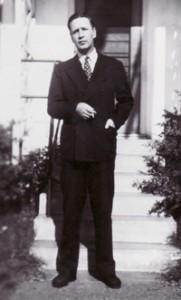To answer a question about why I write my genre, I first would need to pick a genre as “mine.” And I can’t really do that. Sci-fi, fantasy, horror, romance, all these (and more!) appeal to me at different times. I can’t lock down on one genre as my favorite, or even having a preference. I’m much more likely to figure out the genre once I get a decent story idea in place, rather then say, “I’m going to write a fantasy story.” When I set about to writing something genre, I find it full of stereotypes and cliches. Deciding from the beginning to write a genre story is too constricting for me. When I make a plot, and a real character or two, and work the genre around them, I find myself with a much more interesting story.
Looking over the past year of writing though, there’s one thing that most of my stories have in common: they’re almost always set in a contemporary setting with at least one foot in normalcy. Where that other foot steps is always the question. One story might be a monster-hunting horror story, another might be an alien invasion, and another might look into the heart and soul of loneliness, but in order for me to have relatable, sympathetic protagonists, I want that anchor in the real world. These stories always start out with a basic plot and character and go from there. The genre writes itself. Is it a comedy? Horror? Does it take place in the past or future? These are questions that don’t have answers until I have a story, and every story goes on a different path.
Not to say a pure genre story is terribly hard to write or read, but I will usually find the story more enjoyable if I can look out the window and see some of the same things my protagonist would see. I guess you might call my favorite genre “urban”. Instead of a fantasy story in a mystical land, I’d much rather put the elves and magic in the modern, contemporary world and see what kind of trouble happens. It can even be set in the past or future, as long as it’s about real people doing real things. A Sci-Fi story about space battles doesn’t interest me; I’m much more likely to write about the people down at the planets surface and the effects of said space battle on their lives.
